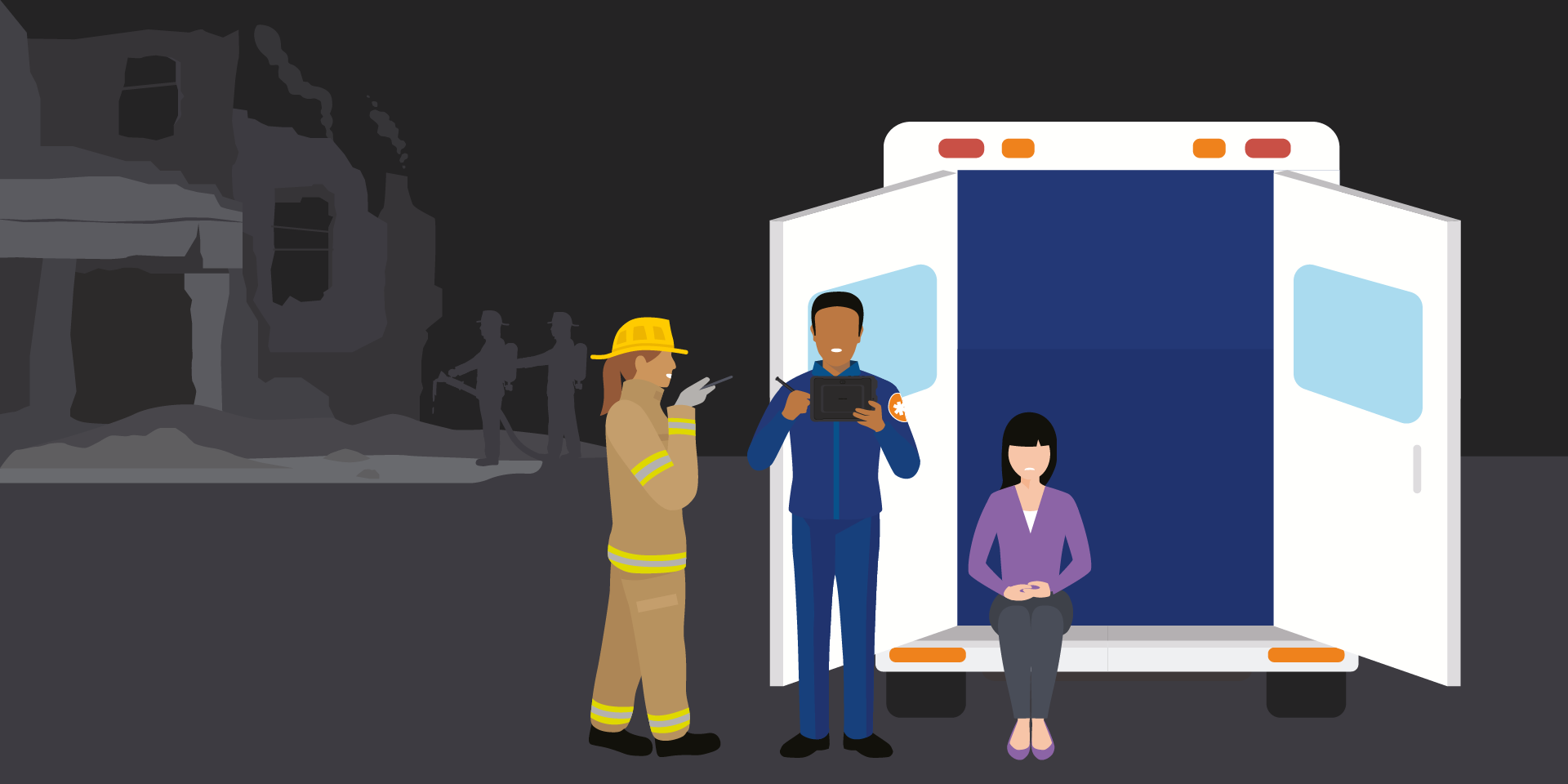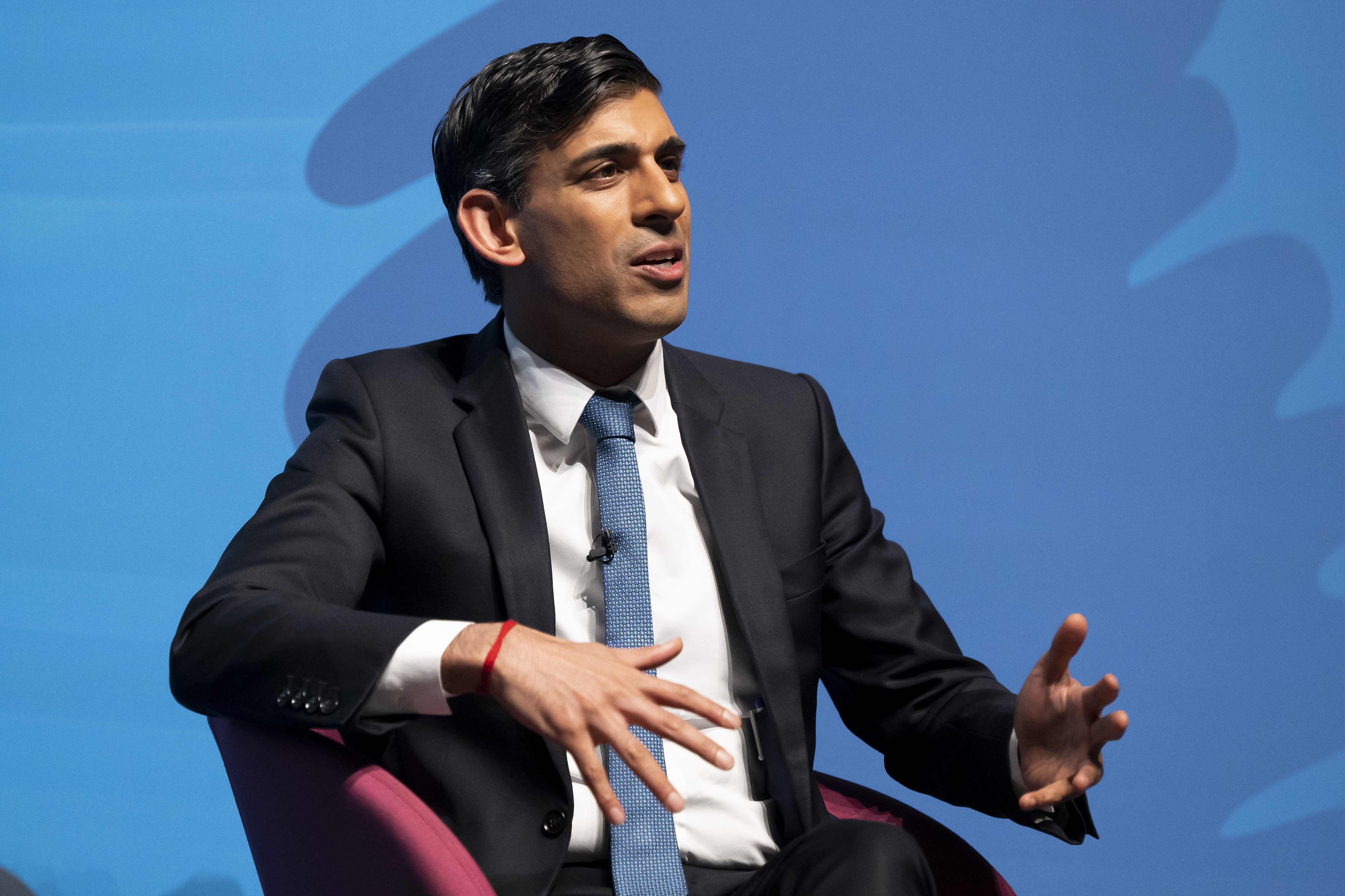The MedTech startups grappling with tomorrow’s health challenges
CTOs, CEOs and founders explain how their companies are powering the next generation of digital healthcare systems

COVID-19 has shown how important it is for governments across the world to co-ordinate if they’re to rise to the medical challenges of the future. Healthcare and medical technology (MedTech) startups, too, are working to revolutionise everything from front-line care to genetics. Although the pandemic has thrown up barriers to their success, it’s also offered new opportunities by changing the way we think about how care is delivered.
It’s a great time to be working in the sector and to be launching new products, according to Sano Genetics’ CTO, William Jones, whose company offers genetic testing services alongside partnering with major universities on healthcare studies. This is because startups are enjoying a strong funding environment, with MedTech at the forefront of public consciousness. For example, apps such as ZOE COVID Study, developed by Kings College London (KCL), which monitors the spread of COVID-19, helped to establish health-related platforms as being key to allowing people’s daily lives to continue.
“On the one hand,” he says, “[COVID-19] has caused delays in clinical research, dramatically shifted company priorities, and slowed decision-making in bureaucratic companies. It’s also reminded us how important medical infrastructure is for society, and it’s highlighted challenges the industry faces are great opportunities for ambitious startups.”
Personalising digital healthcare is crucial
As Jones observes, a common issue for many startups has been ongoing delays to clinical research due to lockdowns and social distancing measures. This has hampered the capacity for some startups to grow or apply for more investment due to the lack of data streaming into their platforms to be analysed, and, ultimately, add credence to their models.
Despite this barrier, LovedBy founder Matt Farrar believes innovation in both wearables and artificial intelligence (AI) is ripe. The firm, which he founded three years ago after his 12-year-old son was diagnosed with type 1 diabetes, uses technology and nudge theory to improve the lives of adolescents with chronic conditions. Farrar brought together behavioural specialists, neurologists, consultants and coders to pursue this vision, and he cites “personalisation” as a key area of focus for the MedTech sector to make it relevant to those it’s serving.
“Connected systems, data, private and public healthcare collaboration, and improved end-user mobile capability – all of these open up opportunities to contextualise and personalise advice,” he says. “The prospect of being aware of what I can do on a micro, hyper-personalised level to maintain my health in a simple monthly and affordable subscription, using accessible consumer tech, is fascinating.”
He warns, however, that regulations on medical devices and data protection remain a significant and expensive hurdle for startups seeking to launch in this area. “The regulation that protects lives and personal data is an obvious necessity,” he continues. “All MedTech startups should know they’ll need to build the legal and infrastructure costs into their business plan.
Sign up today and you will receive a free copy of our Future Focus 2025 report - the leading guidance on AI, cybersecurity and other IT challenges as per 700+ senior executives
“You do need to have good compliance partnerships early in your company’s development to help you navigate the detail. As you gain traction, revenue, and success, you should work with your product teams to ensure that the privacy and data security changes are baked into your roadmap. In addition, you really need to think about your aspirational target geographies. For instance, compliance in the EU is very different from compliance in the US, so understand early the impact this could have on your technology stack or choice of cloud infrastructure.”
Preaching to the technologically uninitiated
Another challenge for MedTech startups is ensuring that doctors, nurses, and other healthcare professionals, understand the value of what they’re offering. Dag Larsson, CEO of Doccla, which provides virtual wards to NHS trusts, suggests buy-in from clinicians to technological change is still tough to achieve.
RELATED RESOURCE

The ultimate guide to going mobile for fire/emergency medical services
Get your free guide to going mobile for fire services and EMS
“At an everyday level, clinicians tend to be incredibly wary of new technologies and approaches to their working lives,” he explains. “In our experience, we know that new technologies can appear, on the surface, as more work to get used to, but, by being the helping hand and guiding them through those first few days, almost all clinicians recognise the value. Some even go on to champion the tech for use among different patient groups.
“The other challenge is to introduce change at scale,” he continues. “Healthcare is a phenomenally complicated ecosystem, with so many interdependencies and separate decision-makers, all set in the context of tight regulation and risk aversion. As a result, it can take years to make headway if you don’t have the right strategy.”
Cracking that strategy can, however, pay dividends, though, with Larsson explaining how Doccla experienced five years of growth within three months when asked to deliver virtual wards to cope with COVID-19. The company was, during the pandemic, tasked with keeping the most vulnerable patients away from hospitals to minimise any infections acquired there.
“Organisations like NHSX are breaking down the barriers for MedTech startups, like ours, to have a huge impact,” he adds. “They recognise our ability to listen to the needs of NHS trusts and move quickly to provide the right technology easily, with minimal disruption.”
Data from wearables, in-home monitoring to ease pressure on health services, and greater use of the Internet of Things (IoT), are all growth areas for MedTech. Dr James Somauroo, co-founder of health technology innovation agency SomX, points to a number of startups as examples of companies putting forward technologies to handle today’s challenges well. These include the likes of Ampersand Health, which develops apps to help patients living with chronic conditions communicate with clinicians, and Feebris, an AI platform that takes vital signs from people at risk of illness, such as those living in care homes.
He also highlights, until recently, there hasn’t been a clear, safe and effective platform to overcome the lack of interoperability between health startups, internal NHS systems, and a lack of patient access to data. Privacy, and the security of data, are both huge issues in healthcare that, he continues, are literally a matter of life and death.
Jonathan Weinberg is a freelance journalist and writer who specialises in technology and business, with a particular interest in the social and economic impact on the future of work and wider society. His passion is for telling stories that show how technology and digital improves our lives for the better, while keeping one eye on the emerging security and privacy dangers. A former national newspaper technology, gadgets and gaming editor for a decade, Jonathan has been bylined in national, consumer and trade publications across print and online, in the UK and the US.
-
 Is Rishi Sunak’s ‘Unicorn Kingdom’ a reachable goal or a mere pipedream?
Is Rishi Sunak’s ‘Unicorn Kingdom’ a reachable goal or a mere pipedream?Analysis Plunging venture capital investment and warnings over high-growth company support raise doubts over the ‘Unicorn Kingdom’ ambition
-
 Some Tech Nation programs could continue after Founders Forum acquisition
Some Tech Nation programs could continue after Founders Forum acquisitionNews The acquisition brings to a close a months-long saga over what the future holds for Tech Nation initiatives
-
 Podcast transcript: Startup succession: From Tech Nation to Eagle Labs
Podcast transcript: Startup succession: From Tech Nation to Eagle LabsIT Pro Podcast Read the full transcript for this episode of the ITPro Podcast
-
 The ITPro Podcast: Startup succession: From Tech Nation to Eagle Labs
The ITPro Podcast: Startup succession: From Tech Nation to Eagle LabsITPro Podcast Some small firms are already lamenting the loss of Tech Nation, but Barclays Eagle Labs has much to offer the sector
-
 Don’t count Barclays Eagle Labs out just yet – it can deliver in ways Tech Nation never has
Don’t count Barclays Eagle Labs out just yet – it can deliver in ways Tech Nation never hasOpinion Tech Nation has a great track record, but Eagle Labs has the experience, the financial clout, and a clear-cut vision that will deliver positive results for UK tech
-
 UK tech sector could face a ‘unicorn winter’ amid spiralling economic conditions
UK tech sector could face a ‘unicorn winter’ amid spiralling economic conditionsNews Tech Nation’s final piece of industry research calls for action to support continued ecosystem growth
-
 "It's still not great": Industry divided on government's SMB tax relief package
"It's still not great": Industry divided on government's SMB tax relief packageNews The government’s handling of R&D tax credits has left SMBs with a “sense of disbelief”
-
 UK startup's Equinix deal marks step towards broad quantum computing access
UK startup's Equinix deal marks step towards broad quantum computing accessNews Businesses around the world will be able to use its quantum computing as a service platform through Equinix

